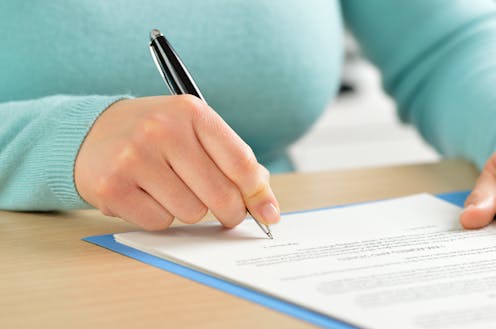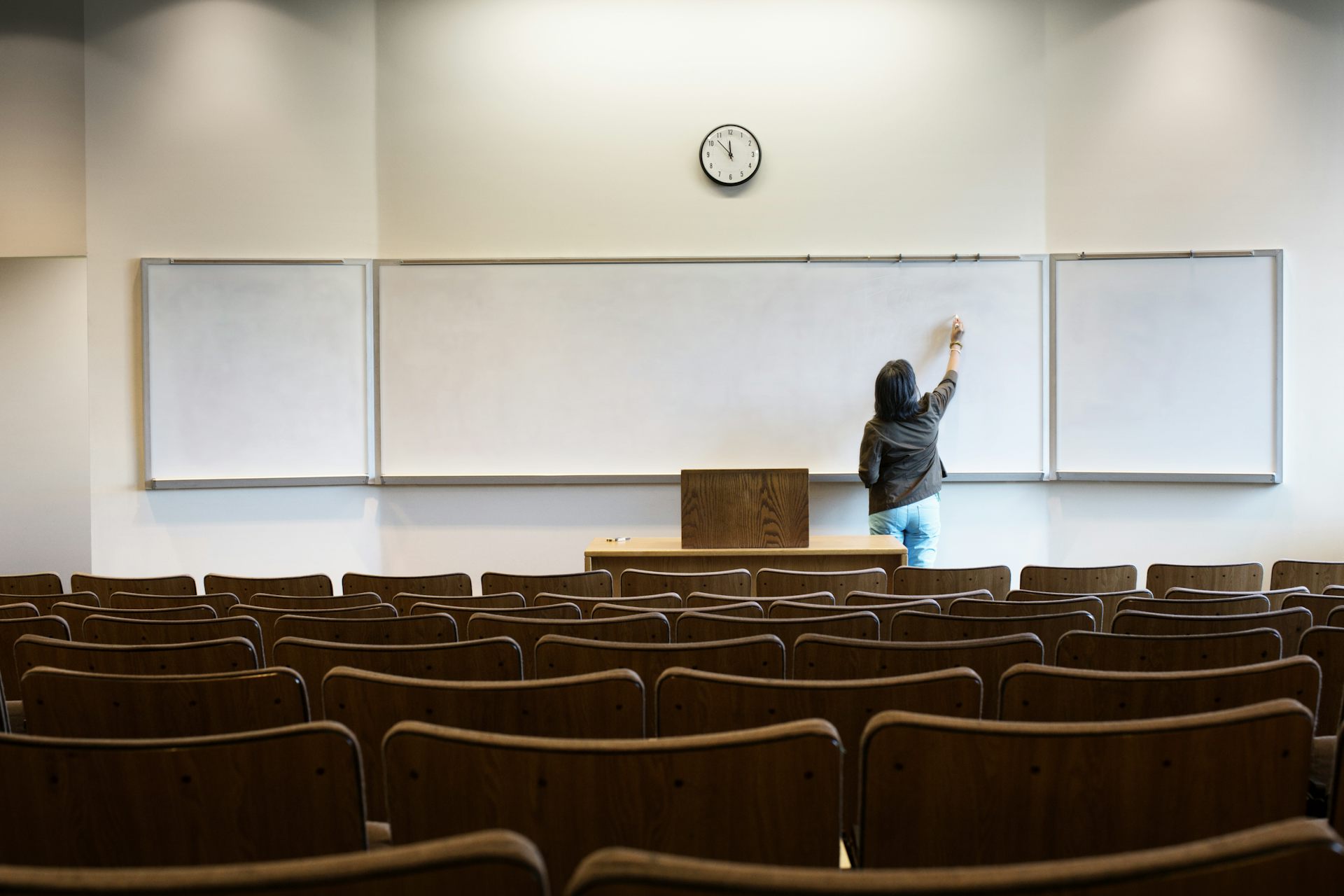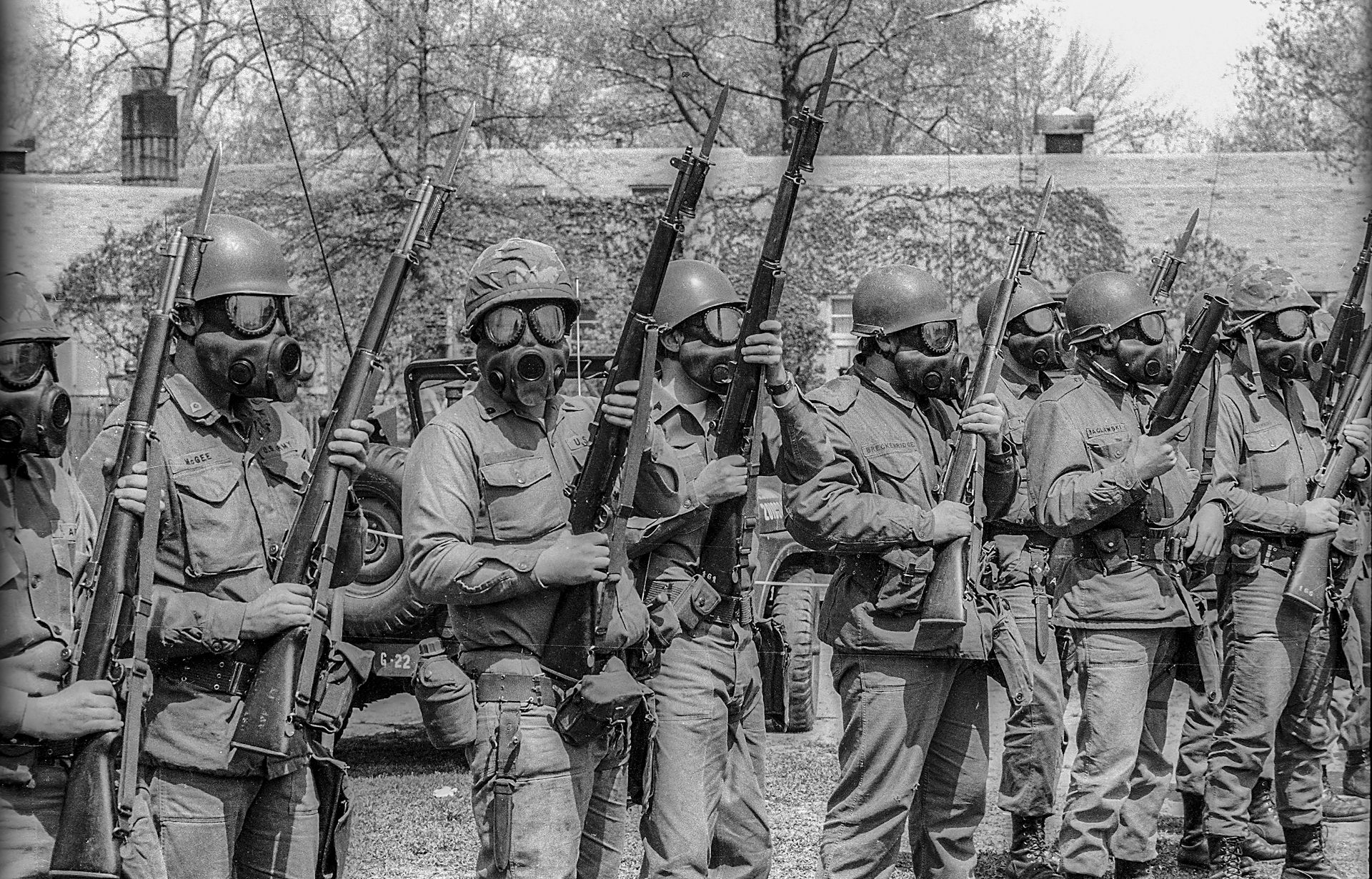What college students need to know about liability waivers for COVID-19
A legal expert explores the limitations of COVID-19 liability waivers some colleges are asking students to sign.

As college and university campuses across the United States reopen, administrators are faced with the task of protecting students while also protecting the interests of the institutions they lead. This includes reducing the risk of lawsuits. Some institutions have resorted to forcing students to sign liability waivers. What purpose do these serve and is this the best course of action? As a professor who researches higher education law, here are my answers to four questions related to these waivers.
1. Do liability waivers protect universities from lawsuits?
Generally, no. A liability waiver is generally viewed in court as an assumption of risk on the part of the person who signs it. So in this case it would be the student. This means that the person acknowledges there are some naturally occurring risks to partaking in an activity. However, a liability waiver does not mean a person signs away all rights to sue for injuries or harm. If a party is grossly negligent, a court might still hold the party legally responsible.
For example, if I sign a waiver to participate in a rock-climbing class, I acknowledge some risks, such as slipping and falling and breaking a bone. However, my signature does not mean I’ve agreed to waive my right to sue if the facility’s safety equipment is faulty or it fails to provide needed instruction.
Students returning to campus inherently know they will face some risk of exposure to COVID-19. I do not believe universities should force them to acknowledge the obvious. However, if a university wantonly deceives the student body by hiding or delaying notification about an outbreak, or promises certain safety precautions and fails to take them, a liability waiver will not be of much use to the school against a lawsuit filed by one or more students.
2. What constitutes liability?
In short, a person who files a negligence claim must demonstrate that the other party was the “proximate cause” of the injury, meaning the injury directly resulted from the inaction or improper action of the other party. This could be physical injury, emotional injury or even injury to one’s reputation.
Though the higher education community has sought immunity from Congress over COVID-19-related lawsuits, the probability that courts would hold a university that has taken good faith, common sense measures liable for a student’s illness is unlikely, I believe. First, establishing proximate cause would be difficult. Could the student have been infected at the grocery store? Was the student infected by the carelessness of a roommate or classmate, rather than any malfeasance on the part of the institution? Further, if courts were to open the doors to such lawsuits, then universities could perhaps be sued every cold and flu season. Similarly, every airline, restaurant, and department store could be held liable for their customers’ COVID-19 – or flu infections. That is something I just do not see courts paving the way for.
3. Can universities force anyone to sign liability waivers?
Unfortunately, it appears that an institution can legally make signing liability waivers mandatory and an enrollment requirement. What is problematic is this places a student who may feel uncomfortable returning to campus or signing such a document in an unfair predicament. Can that student defer without paying a penalty? Will the student be able to transfer courses taken at another school during the pandemic? Essentially the student is being offered a “take it or leave it” contract with potentially serious repercussions for their education.
4. What might be a better course of action?
Universities have the authority to control and monitor student behavior via their student codes of conduct. These codes create a contractual agreement between the university and the student as to what is acceptable behavior. Instead of trying to shirk responsibility for student safety, some campuses have made it clear to students that they share in the responsibility for keeping the broader community safe. Some schools are enforcing these regulations more harshly than others. The Ohio State University has cracked down on students who do not follow safety regulations. By late August, it had suspended more than 200 students for violating its COVID-19-related restrictions.
While suspension would appear to be an extreme measure, there unfortunately are no easy answers as to how a university can keep its campus open without succumbing to additional viral outbreaks. At Louisiana State University, where I teach, students complete online daily symptom checks and are offered free testing. They are quarantined for 14 days – with provisions that classwork will be made virtual for them – should they be exposed to the virus.
All in all, attempting to deflect liability by forcing students to sign waivers strikes me as ill-advised for colleges and universities. The optics of having students sign liability waivers are not good, to say the least. It makes colleges and universities seem like they are more concerned with resuming in-person instruction and reopening their dorms than they are about the health, welfare and safety of their students.
Joy Blanchard does not work for, consult, own shares in or receive funding from any company or organisation that would benefit from this article, and has disclosed no relevant affiliations beyond their academic appointment.
Read These Next
The greatest risk of AI in higher education isn’t cheating – it’s the erosion of learning itself
Automating knowledge production and teaching weakens the ecosystem of students and scholars that sustains…
Why Michelangelo’s ‘Last Judgment’ endures
The artist used daring imagery that sparked controversy from the moment it was unveiled.
‘Learning to be humble meant taming my need to stand out from the group’ – a humility scholar explai
Humility is a virtue that many people admire but far fewer practice. A scholar describes how a professional…






